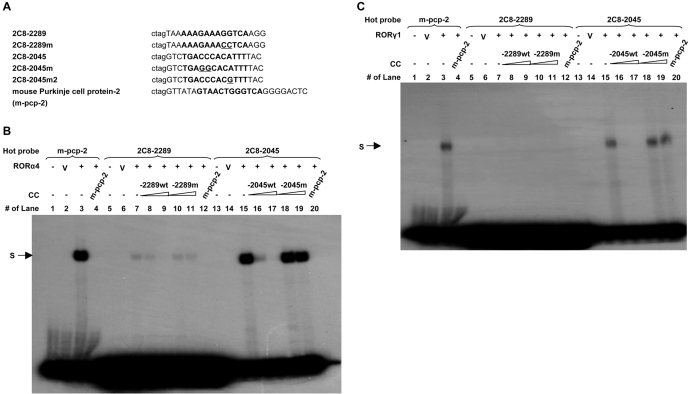Fig. 2.
Identification of the -2289 and -2045RORE within the CYP2C8 promoter by gel shift assays. A, sequences of the oligonucleotides used for the binding assay for Figs. 2 and 3. Known or putative ROREs are written in bold and capital, the point mutations are underlined, and the nucleotides in lower case were added for labeling. B and C, 32P-labeled probes for two putative ROREs within CYP2C8 (at -2289 and -2045 bp, respectively) and one control known RORE from m-pcp-2 were incubated at room temperature for 20 min with (+) or without (-) in vitro-transcribed and -translated ROR proteins RORα4 (B) and RORγ1 (C). Lanes 2, 6, and 14 (V) contained an in vitro translation transcription reaction carried out with empty vector rather than one carried out with vector containing an ROR. For competition analysis, 5× or 50× excess of various cold competitors (CCs) was added into binding reactions. The RORE at -2045 bp in the CYP2C8 promoter bound RORs much more strongly than the element at -2289 bp (B and C). Wild-type but not mutated cold competitors effectively competed for both elements showing the specificity of binding.

